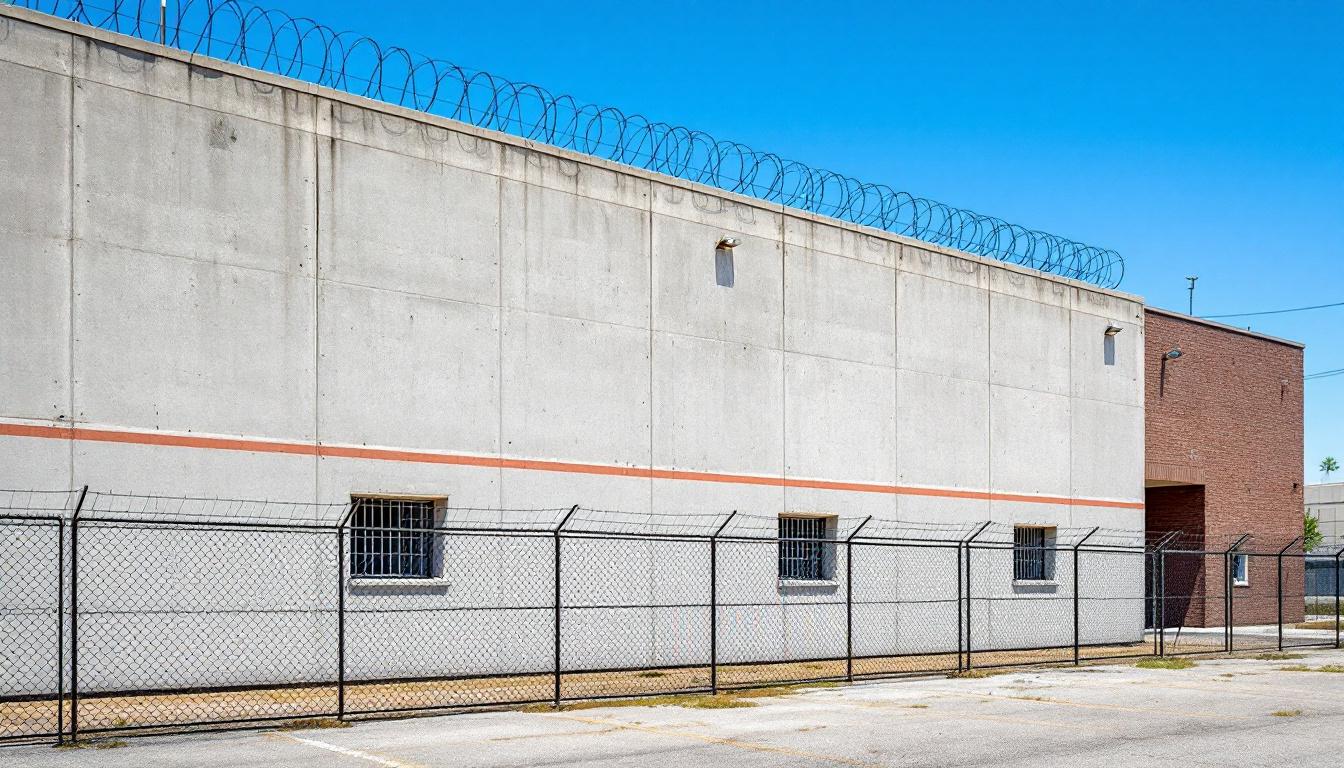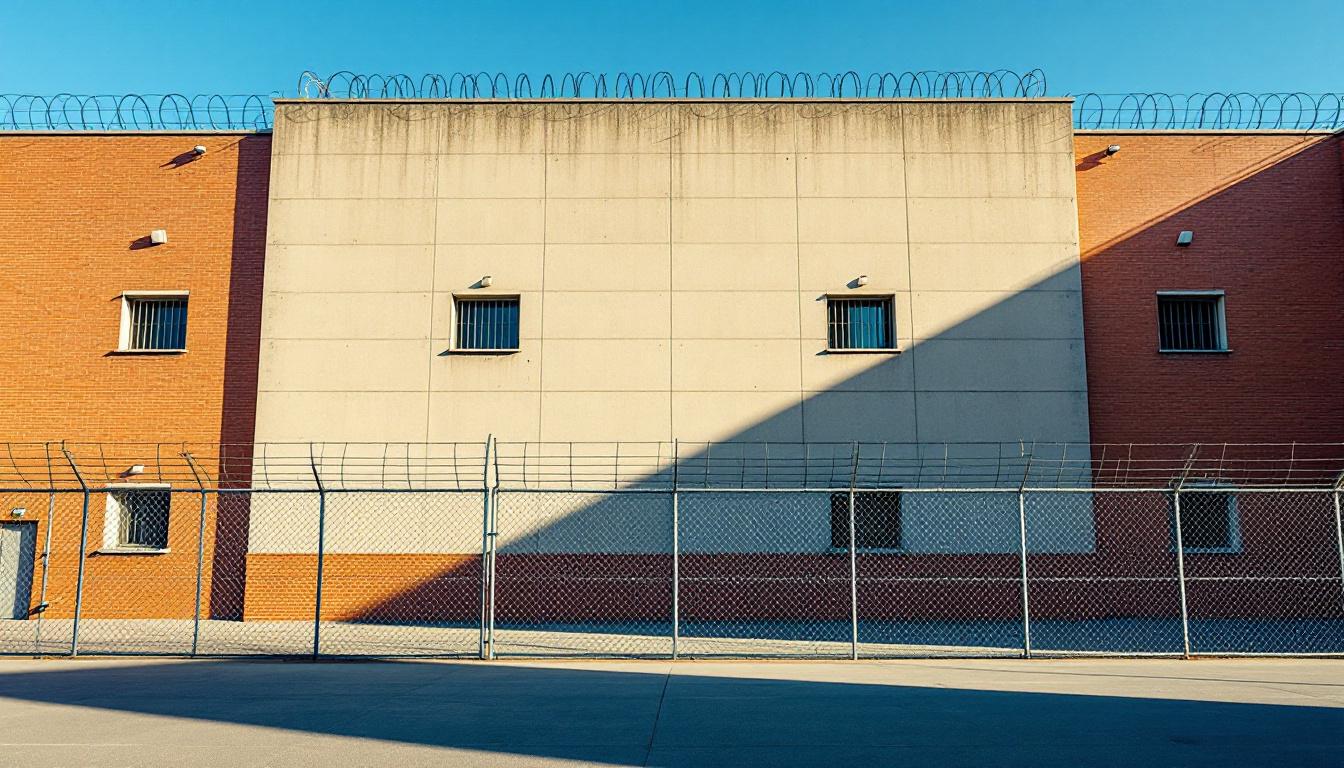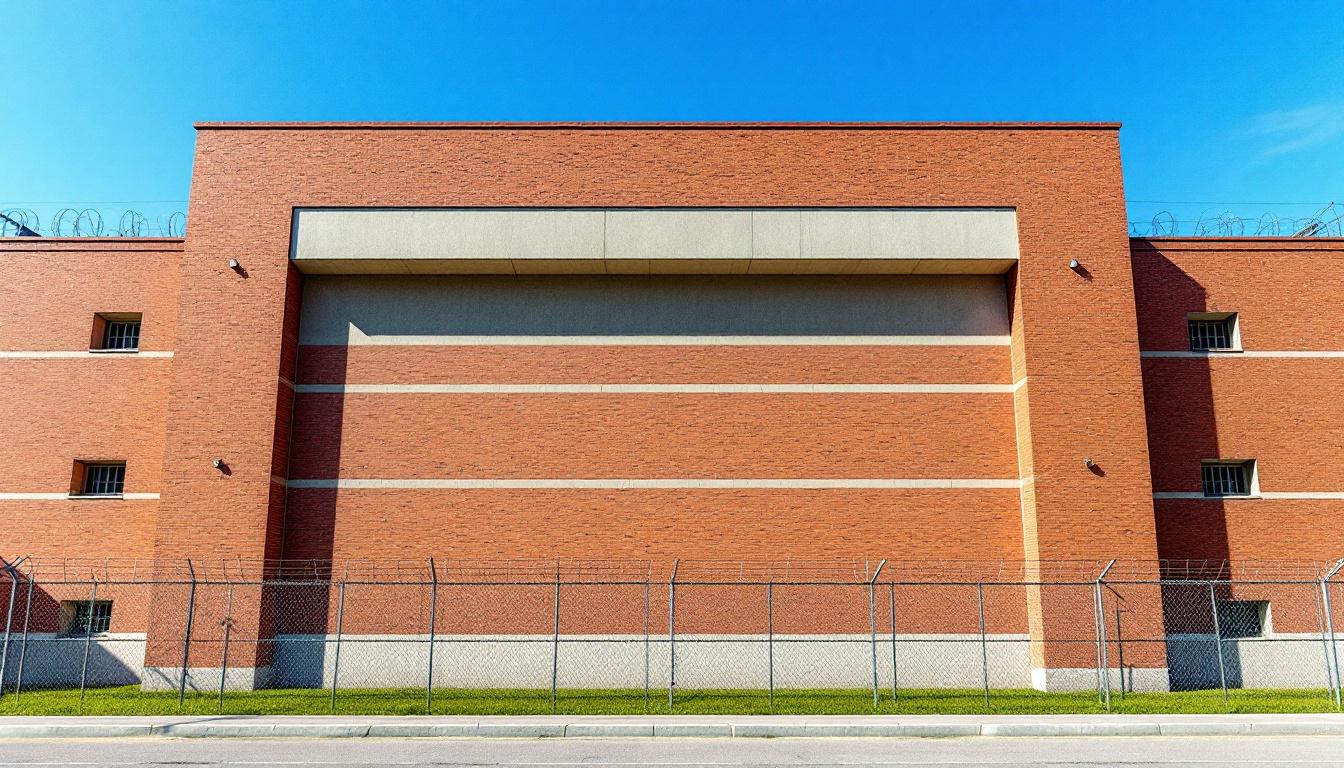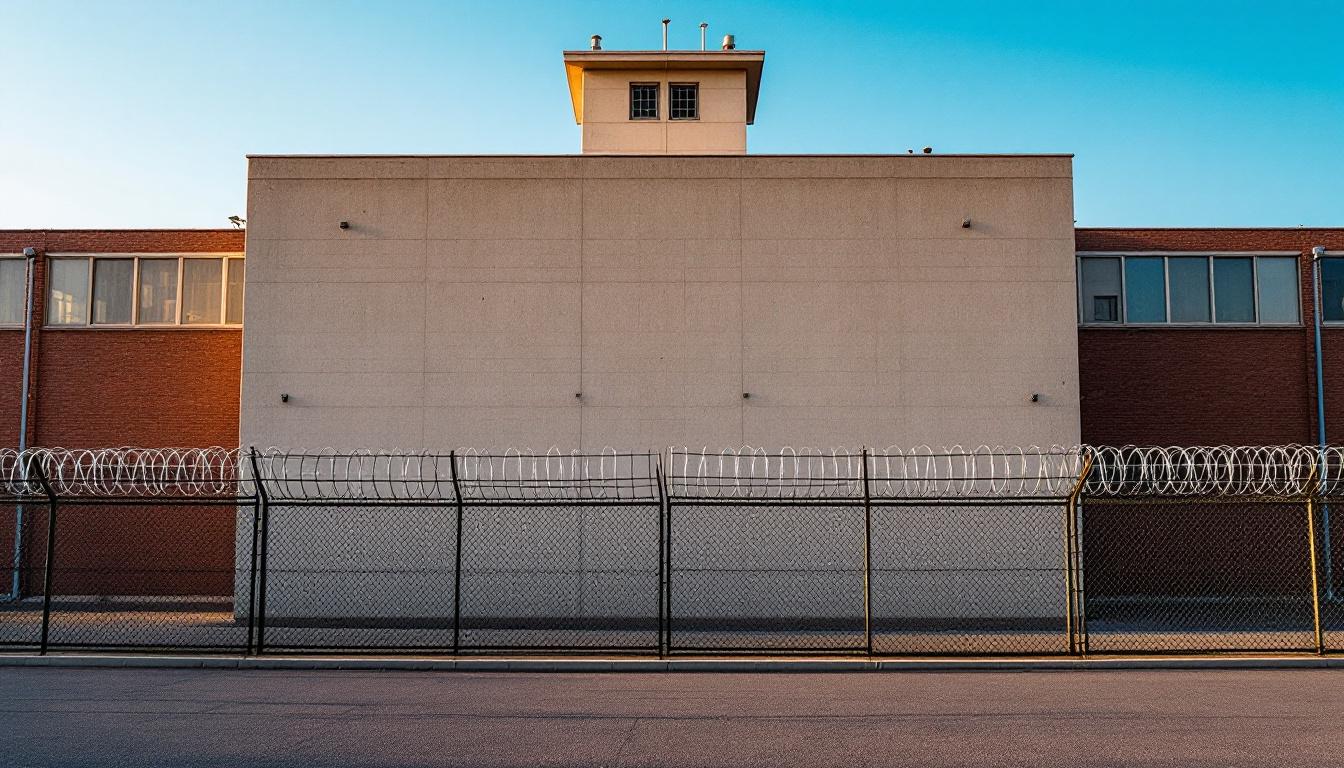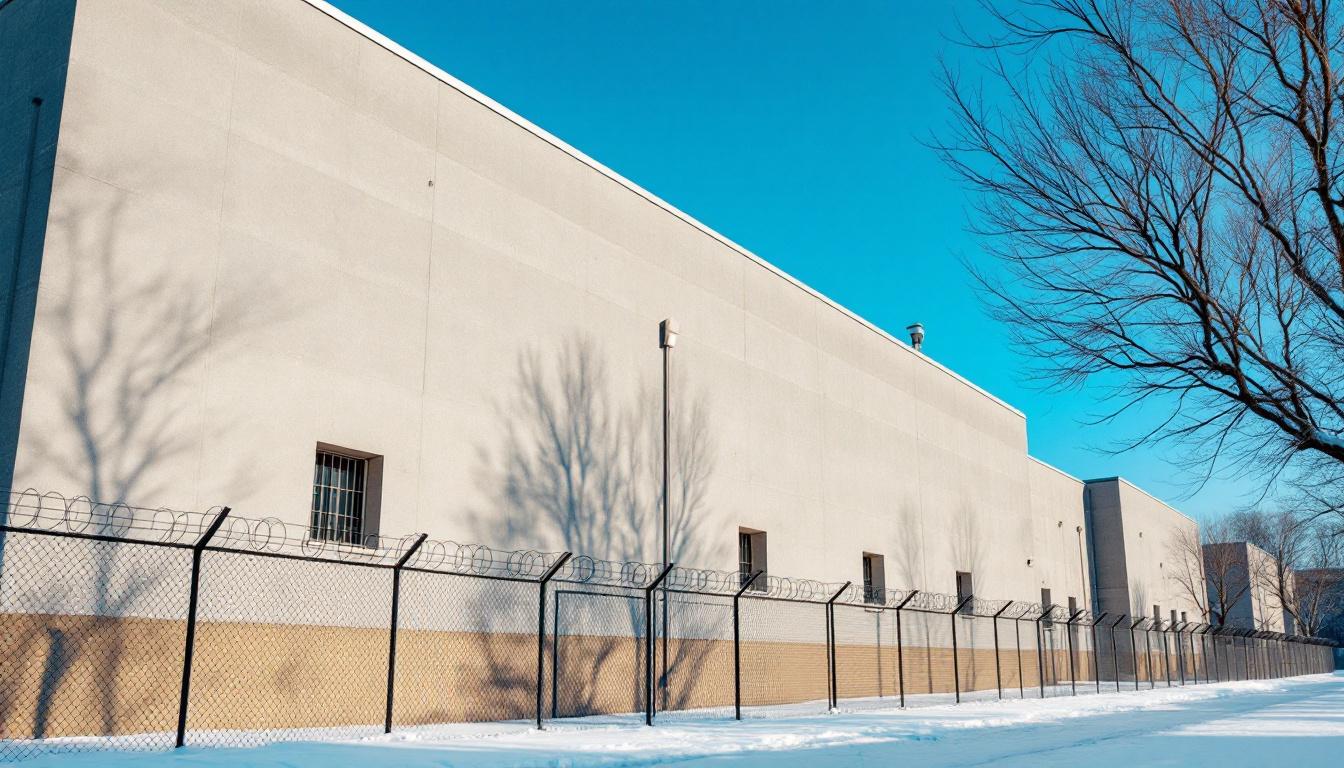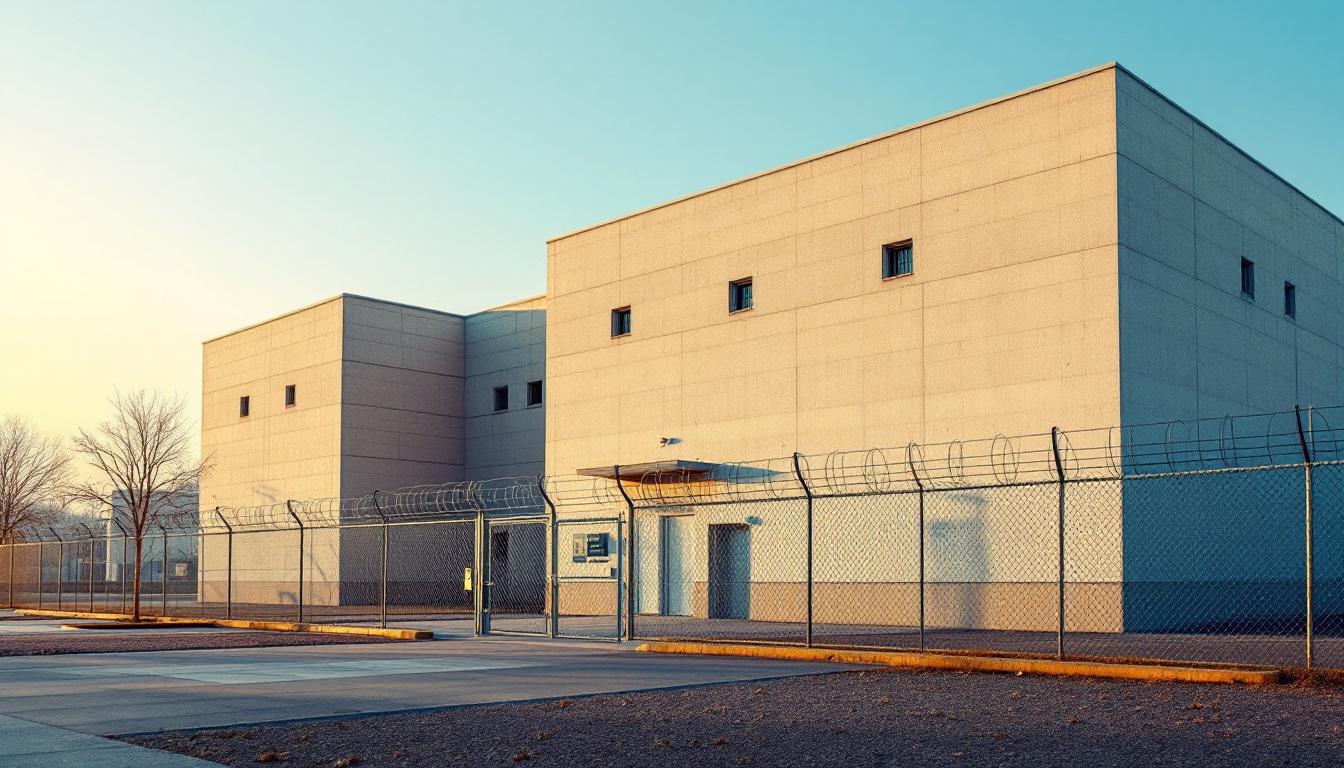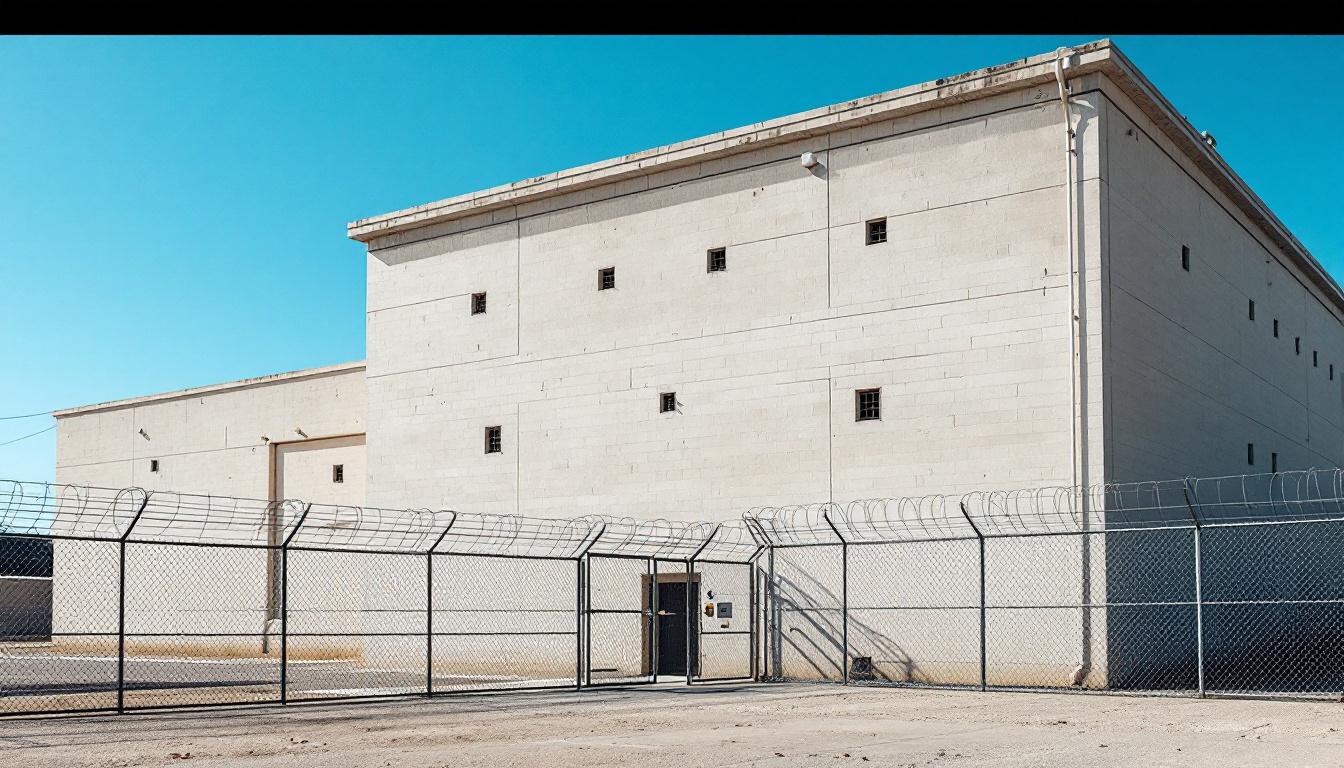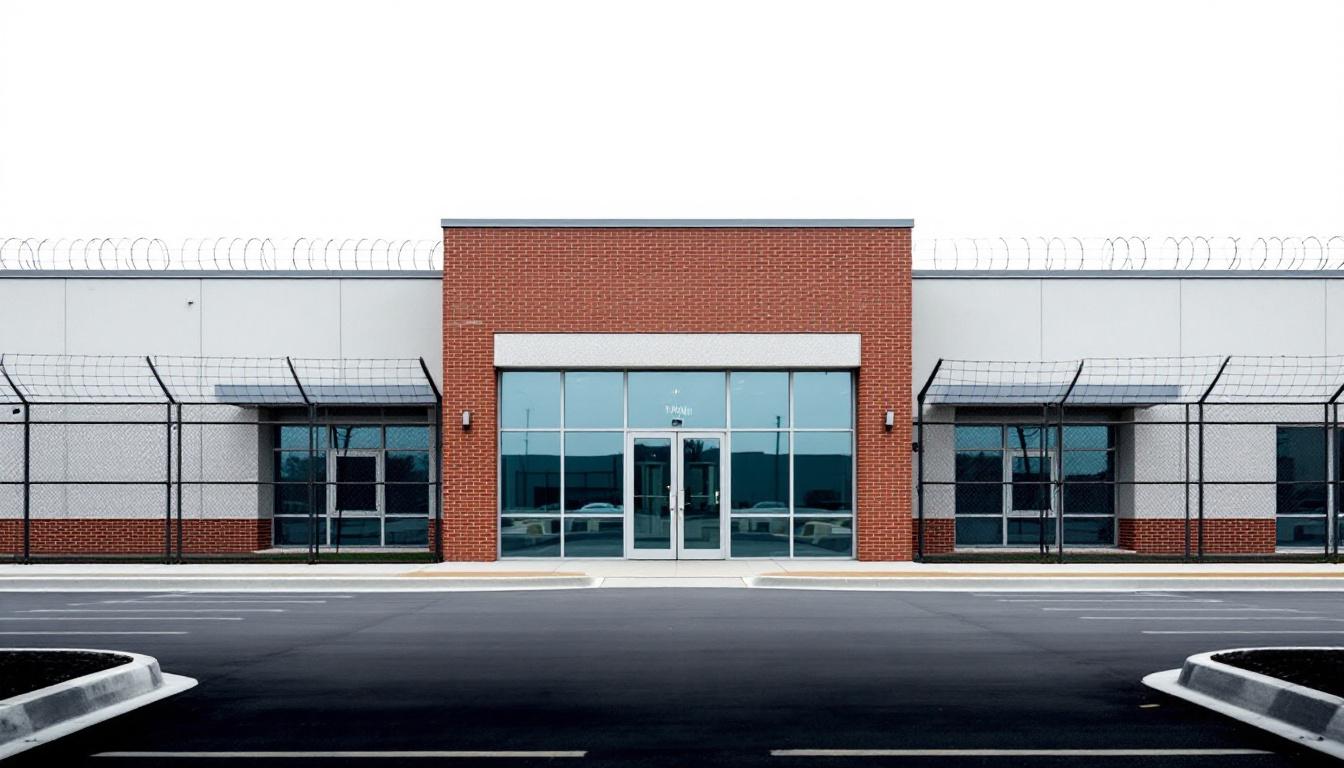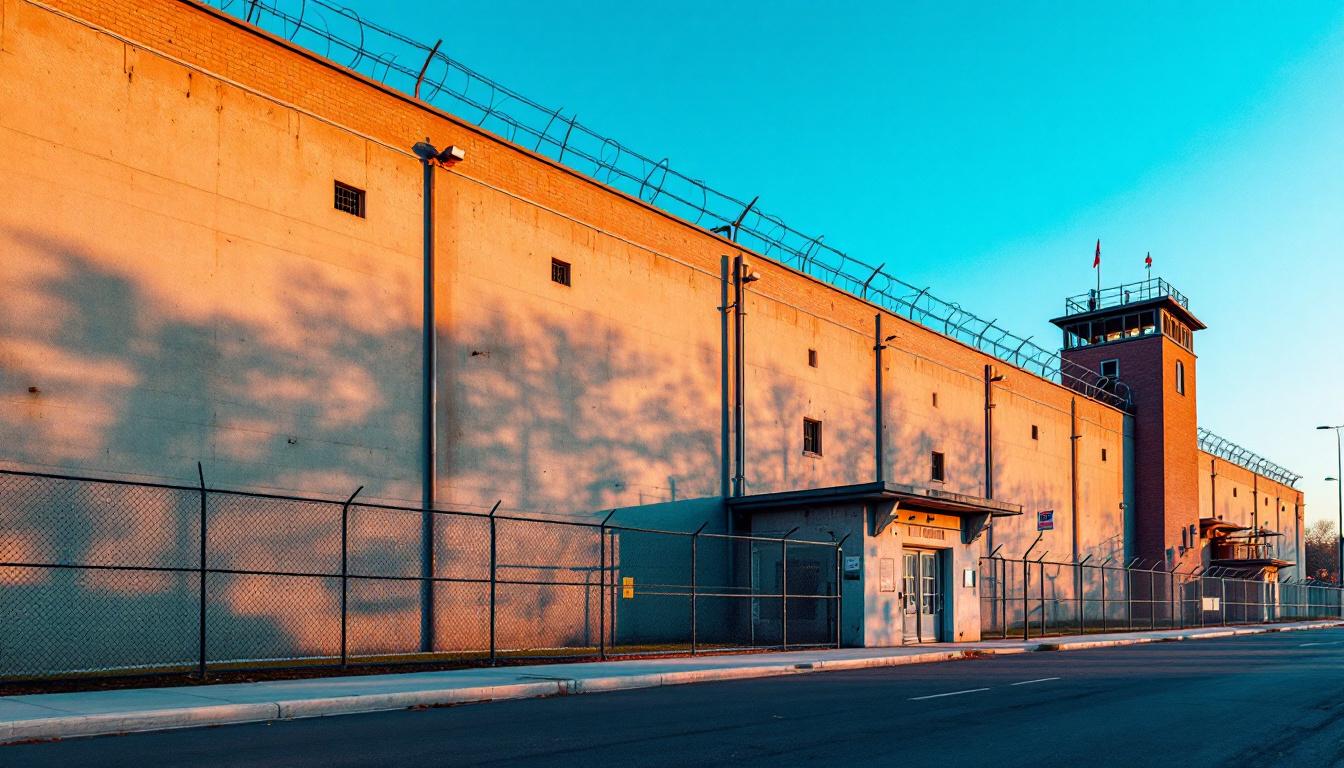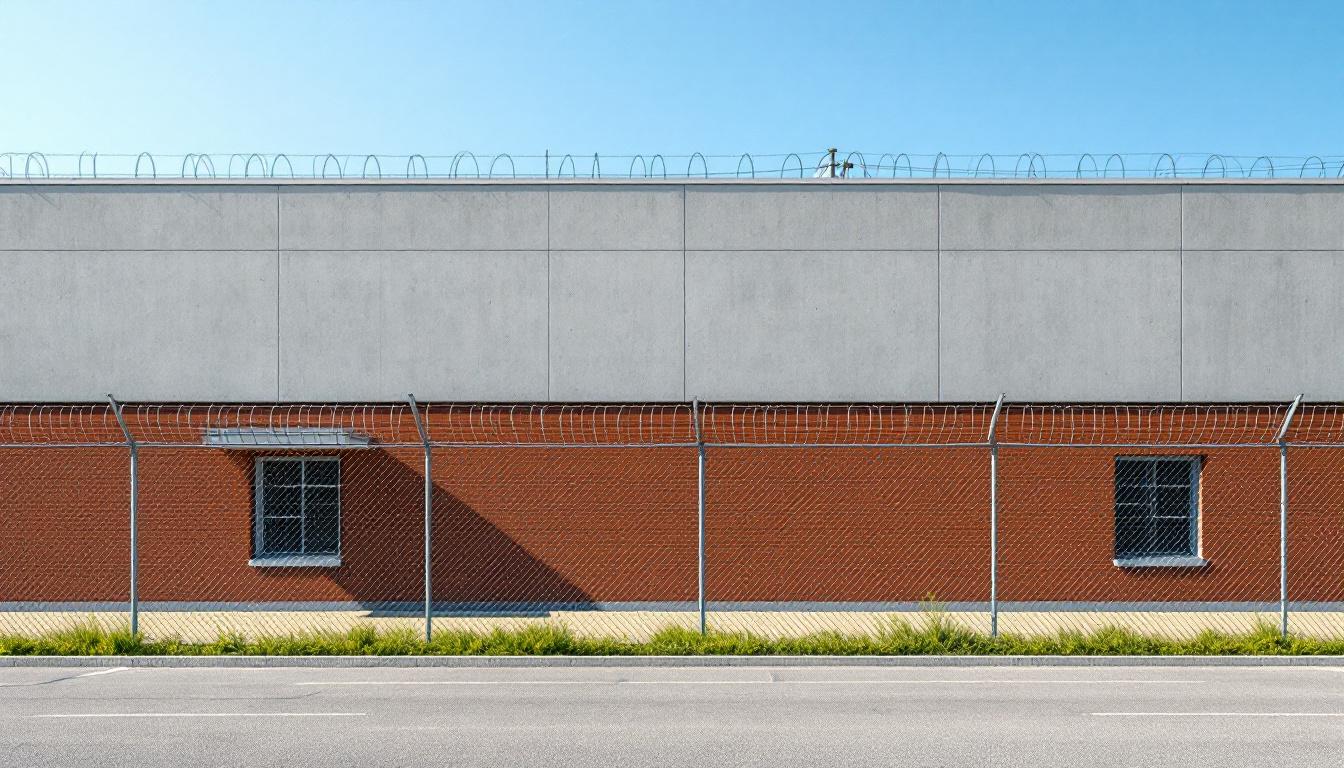
Quick Navigation
How to contact an inmate at Sabine Parish Detention Center
This comprehensive guide will walk you through how to connect with an inmate at Sabine Parish Detention Center. Follow the steps below to find an inmate and send letters and photos:
- Search for the inmate using our search tool below
- Create your account or log in to Penmate
- Write your message (up to 6,000 characters)
- Send instantly - inmates receive printed copies daily
Find an Inmate
Search for an inmate to start communicating today
Tip: You can search by first name, last name, or inmate ID number
To contact a person at Sabine Parish Detention Center start by searching for the person on the facility website. Perform a search by following these steps:
- Step 1: Enter their first name and last name into the search form and click "Search"
- Step 2: Locate their inmate record
- Step 3: Write down their Inmate ID and any housing information provided
Important! Be sure to enter the person's full name. Nicknames should not be used.
How to Send Messages to Inmates

You can use your phone or computer to send emails, letters, and photos to an inmate. Messages are sent electronically to inmate tablets or kiosks at the facility. If you would like to send a message, start by searching for an inmate at Sabine Parish Detention Center.
Sending Photos and Postcards

A great way to send love and support to a loved one at Sabine Parish Detention Center is to send photos and postcards. It only takes a few minutes to send photos from your phone and it makes a huge difference. You can also mail postcards with words of support and inspiration, or design your own postcard for special moments like birthdays and holidays.
Important! Be sure not to send any explicit photos or they may not be approved by the facility. You can also use a photo printing app like Penmate to make sure your photos are printed at the correct size (4x6 or 3x5) and are mailed according to the rules and regulations of Sabine Parish Detention Center.
Frequently asked questions about Sabine Parish Detention Center
-
How long does it take to deliver a message?
If you're sending an email message your letter is usually delivered within 24-48 hours. For messages sent via mail you should expect delivery within 3-7 days. All messages will need be approved by Sabine Parish Detention Center.
-
How much does it cost to send a message to Sabine Parish Detention Center?
You can send a message free using your phone or mail a message via USPS for the price of a $0.60 stamp and envelope. You can also purchase credits or e-stamps from services starting at $1.99.
-
What services can I use to contact an inmate at Sabine Parish Detention Center?
Penmate
You can use Penmate to send letters and photos to an inmate from your phone. It's an easy way to stay in touch during your loved one's incarceration. Use the inmate locator to find an inmate's location and contact information, then you can send messages within a few minutes.
Securus messaging
Securus may be another option for communicating with an inmate at Sabine Parish Detention Center. You can create a friends and family account and purchase credits to send messages. All messages will be reviewed and must be approved by the facility.
JPay
Some county jails and state prisons may support sending messages with JPay. You must register an account with the system, find your loved one, and purchase stamps to send messages. For some locations you can also attach photos.
Smart Jail Mail
You may also check if Smart Jail Mail is available at Sabine Parish Detention Center. Smart Jail Mail is operated by Smart Communications and has contracted with some state and county jails. After purchasing credits, your messages and photos are sent to the facility, printed out, and then handed out to your loved one.
-
What is the mailing address of Sabine Parish Detention Center?
Mailing address:
Sabine Parish Detention Center
384 Detention Center Rd
Many, LA 71449
Phone: (318) 256-0006 -
What are the visiting hours at Sabine Parish Detention Center?
Visiting hours at Sabine Parish Detention Center vary by housing unit and security level. Generally, visits are scheduled on weekends and holidays, with some facilities offering weekday visits. Contact the facility directly at (318) 256-0006 or check their website for the current visiting schedule. Visits typically last 30-60 minutes and must be scheduled in advance.
-
What items are prohibited when sending mail to Sabine Parish Detention Center?
Prohibited items typically include: cash, personal checks, stamps, stickers, glitter, glue, tape, staples, paperclips, polaroid photos, musical or blank greeting cards, hardcover books, magazines with staples, and any items containing metal or electronics. Only send letters on plain white paper with blue or black ink. Photos must be printed on regular photo paper (no Polaroids). Always check with Sabine Parish Detention Center for their specific mail policies.
-
How do I send money to an inmate at Sabine Parish Detention Center?
You can send money to an inmate at Sabine Parish Detention Center through several methods: 1) Online using JPay, Access Corrections, or the facility's approved vendor, 2) Money orders mailed directly to the facility with the inmate's name and ID number, 3) Kiosks located in the facility lobby, or 4) Over the phone using a credit or debit card. Fees vary by method, typically ranging from $2.95 to $11.95 per transaction.
-
Can I schedule a video visit with an inmate at Sabine Parish Detention Center?
Many facilities now offer video visitation as an alternative to in-person visits. At Sabine Parish Detention Center, video visits may be available through services like Penmate, Securus Video Connect, GTL, or ICSolutions. Video visits typically cost $10-20 for 20-30 minutes and must be scheduled in advance. You'll need a computer or smartphone with a camera and reliable internet connection. Contact the facility for their specific video visitation policies and approved vendors.
-
What identification do I need to visit an inmate at Sabine Parish Detention Center?
All visitors must present valid government-issued photo identification such as a driver's license, state ID, passport, or military ID. Minors must be accompanied by a parent or legal guardian who can provide the minor's birth certificate. Some facilities require visitors to be on the inmate's approved visitation list, which may require a background check. Contact Sabine Parish Detention Center for specific ID requirements and visitor approval procedures.
-
How can I find out an inmate's release date?
To find an inmate's release date at Sabine Parish Detention Center, you can: 1) Use the online inmate search tool if available, 2) Call the facility's records department, 3) Contact the inmate's case manager or counselor, or 4) Have the inmate provide this information during a call or visit. For privacy reasons, some facilities only release this information to immediate family members.
Facility Overview
Contact Information
Sabine Parish Detention Center384 Detention Center Rd
Many, LA 71449
Phone: (318) 256-0006
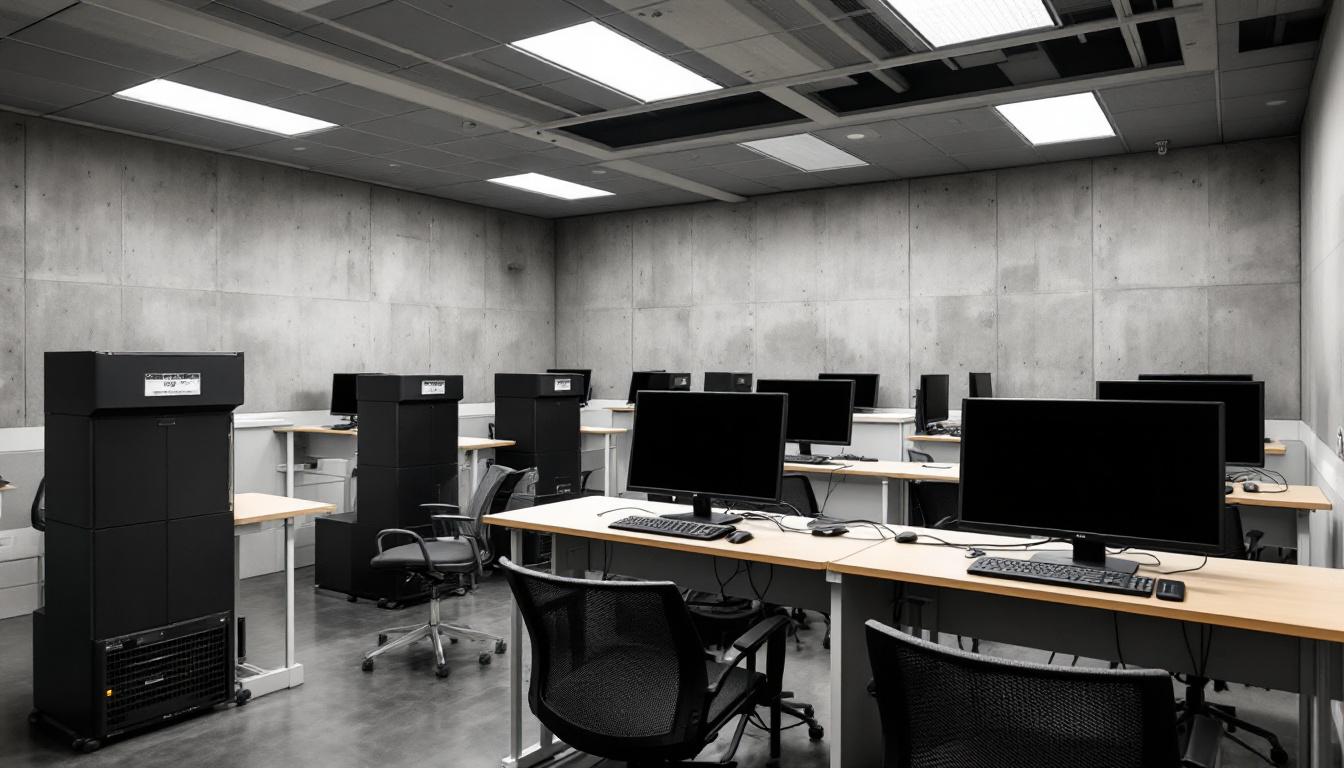
About Sabine Parish Detention Center
Nestled in the heart of Many, Louisiana, the Sabine Parish Detention serves as a key component within the state's correctional infrastructure, providing secure housing and supervision for individuals awaiting trial or serving shorter sentences. This LA correctional facility operates within the broader framework of Louisiana's parish-based detention system, typically maintaining connections with local courts, law enforcement agencies, and community service providers throughout the region.
The facility generally emphasizes maintaining residents services that may include basic educational opportunities, substance abuse counseling, and vocational training programs designed to support successful community reintegration. Through potential partnerships with community resources, the detention center often works to connect individuals with local support networks, healthcare providers, and social services that can assist during both incarceration and post-release transitions. These collaborative efforts typically reflect the facility's role in supporting public safety while addressing the underlying factors that may contribute to criminal behavior.
Staff members at the detention center generally focus on maintaining security protocols while facilitating access to programs that may help prepare residents for their eventual return to the community. The facility's location in Many allows for potential coordination with regional organizations and service providers, creating opportunities for residents to maintain family connections and access resources that support rehabilitation goals throughout their time in custody.
Programs & Services
Comprehensive rehabilitation initiatives at Sabine Parish Detention Center typically emphasize skill development and personal growth through carefully structured programming designed to address the diverse needs of residents. The facility's approach often integrates educational advancement with practical life skills training, creating pathways that may facilitate successful community reintegration. These initiatives frequently operate under the philosophy that meaningful engagement in structured activities can foster positive behavioral changes while providing residents with valuable tools for their future endeavors.
Educational initiatives may deliver foundational literacy programs alongside more advanced academic coursework, allowing residents to pursue their high school equivalency credentials or strengthen existing academic skills. The facility often includes computer literacy training as part of its educational offerings, recognizing the importance of technological competency in today's employment landscape. Also, vocational training initiatives typically provide hands-on instruction in practical trades and marketable skills, which may encompass areas such as construction basics, food service preparation, or maintenance techniques that can translate into employment opportunities upon release.
Support services form a crucial component of the facility's comprehensive approach, with faith-based services often available to residents seeking spiritual guidance and community connection during their incarceration. Library services typically provide access to educational materials, legal resources, and recreational reading options that support both personal enrichment and practical needs. Also, housing assistance initiatives may deliver guidance and resources to help residents prepare for stable living arrangements post-release, addressing one of the most significant challenges individuals face when transitioning back into the community.
Daily Life & Visitation
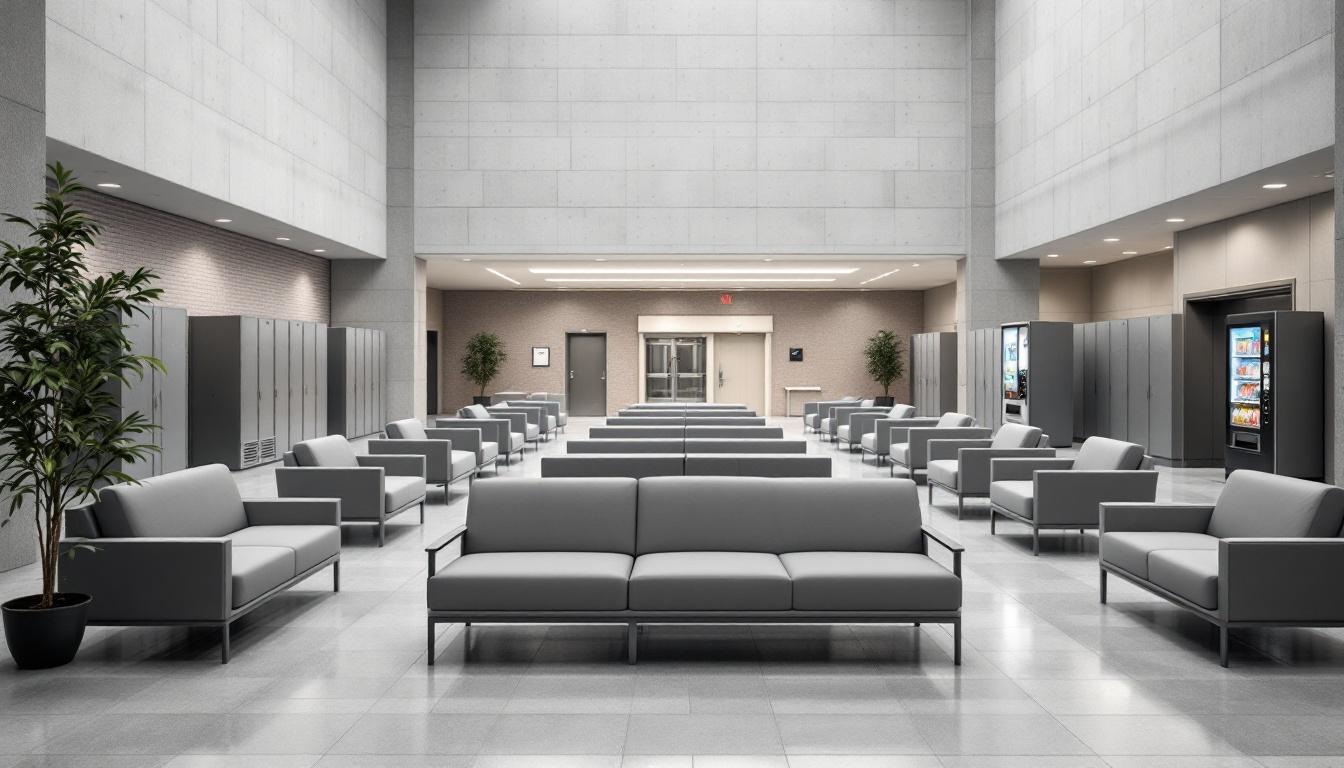
The rhythmic sound of doors unlocking and footsteps in corridors marks the beginning of each day, as structured routines currently guide every aspect of life within the facility. Residents at Sabine Parish Detention Center typically follow a carefully organized schedule that continues to provide predictability and stability throughout their stay. Wake-up calls generally occur in the early morning hours, followed by personal hygiene time and preparation for the day ahead, with each segment of the daily routine designed to deliver consistency and order.
Living accommodations within the facility typically feature dormitory-style housing units or individual cells, depending on classification levels and security requirements. Residents usually share common areas for meals, which are served at designated times in the main dining hall, with menus that generally meet basic nutritional standards and accommodate special dietary needs when medically necessary. Also, recreational opportunities may include access to outdoor exercise yards during scheduled periods, indoor recreation areas, and television viewing in common spaces, allowing residents to maintain physical activity and social interaction within the structured environment.
However, daily life extends beyond basic routines to include various programming opportunities that may deliver educational, vocational, or therapeutic benefits to participants. Work assignments within the facility often provide residents with responsibilities such as kitchen duties, maintenance tasks, or cleaning assignments, which typically offer structure while contributing to facility operations. Also, communication with family members generally occurs through scheduled visitation periods and telephone privileges, helping residents maintain important connections with their support systems during their time at the facility.
Ready to Connect?
Start communicating with your loved one today
Search for an Inmate
